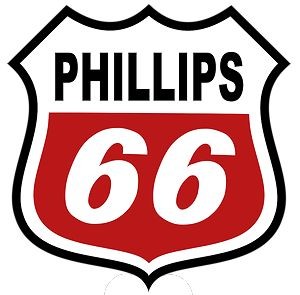A proposal by Phillips 66 to add a 1.5 mile rail spur to its Santa Maria refinery, to accommodate  80-car tanker trains carrying crude oil, has run into resistance from nearby cities, school districts and environmental groups.
80-car tanker trains carrying crude oil, has run into resistance from nearby cities, school districts and environmental groups.
Because rail operations are subject to federal regulation, local governments have no direct control over the project proposed by the refinery. However, Phillips will need approval from San Luis Obispo County for the related construction on its 1,100 acre property. The county is expected to take up the issue early in 2016.
Opponents to the project note that it would result in daily mile-long trains carrying more than 50,000 barrels of crude oil through communities. They argue that a derailment anywhere along rail routes to the plant through Northern and Southern California could result in an explosion or fire.
Phillips says it needs the added capacity to ensure a steady supply of crude to the facility. The refinery, which opened in 1955, has a current maximum permitted output of 44,500 barrels per day (bpd.) The rail project would increase its production to 48,950 bpd.
The Santa Maria refinery mainly processes heavy, high-sulfur crude oil. It produces semi-refined liquids which are sent via a 200-mile pipeline to the company’s Rodeo Refinery in the San Francisco Bay area, where they are upgraded into finished petroleum products. Ancillary products, including petroleum coke and recovered sulfur, are hauled away by truck.
The extended rail spur, which runs eastward from the Union Pacific route along the coast, would split into two “train slots,” each long enough to accommodate an 80-car train. The project would include a 600-foot access platform, pumps, suction lines, steam lines and a pipeline to carry the unloaded crude to the refinery’s existing tank farm. Spill containment and fire suppression facilities would also be built.
Phillips anticipates receiving up to five trains per week, each with 80 tanker cars, two buffer cars and two locomotives. Depending on the capacity of the tanker cars, each train would transport between 52,000 and 57,000 barrels of crude, which could originate anywhere from Texas to Canada.
Opposition to the project has been voiced by the cities of Oakland, San Jose, Santa Barbara, Ventura, Oxnard and others, by supervisors of Monterey and Ventura counties, and by several school districts and a Monterey County fire protection district.
State Senators Bill Monning, Fran Pavley and Hannah-Beth Jackson have submitted letters of opposition.
Phillips has attracted support from chambers of commerce in nearby communities. The Nipomo chamber wrote that it has ‘the utmost confidence in the refinery’s ability to continue to operate safely and effectively.”
